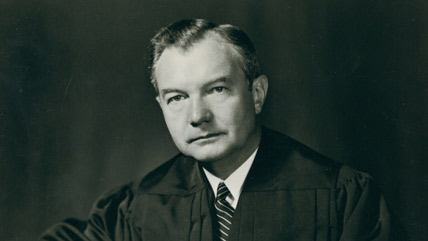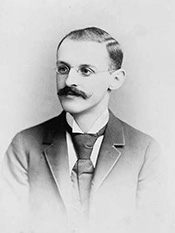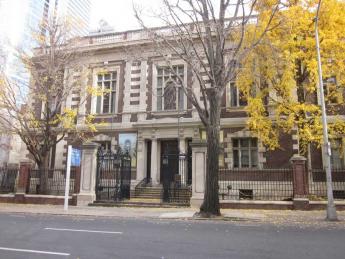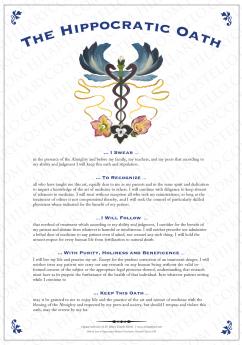Related Topics
Right Angle Club 2017
Dick Palmer and Bill Dorsey died this year. We will miss them.
Post-Graduate Medical Education in Philadelphia

|
| Robert H. Jackson |
Lawyers will tell you a newly graduated lawyer doesn't know much about the practical aspects of law practice. That seems to date back to the days when a lawyer didn't go to law school at all but instead studied the law in the office of a practicing lawyer. It seemed to work out all right since Abraham Lincoln didn't go to law school, and the last Supreme Court Justice not to go to law school was "Scoop" Jackson, who presided over the Nuremberg Trials. The first law school in America was naturally at the University of Pennsylvania, founded by a lawyer who was very influential at the Constitutional Convention, also held in Philadelphia -- James Wilson, so all those lawyers who wrote the Constitution had either studied law without benefit of Law school, or else were rich and had travelled to London to study at the Inns of Court. James Wilson had a famous battle at his house at 3rd and Walnut, subsequently known as the Battle of Fort Wilson, where five later delegates to the Constitutional convention were attacked by what some call a "mob" in 1779, and probably carried a vivid recollection of the event when they were later writing the "original intent" of that document. In any event, the five law schools which style themselves "national law schools" and from which almost all of the big law firms draw corporate lawyers, are pretty firm about the fact that they will teach the associates all they need to know about the practicalities of the law. There are dozens of "state law schools" who feel differently about this, but it can be noticed that all of the Supreme Court Justices come from national law schools at the present time.

|
| Abraham Flexner |
Well, medical schools were pretty much divided along the same lines until the Flexner report of 1913, and subsequently the division was between general practitioners and specialists, with the specialists receiving practical training as residents in hospitals. The medical school administrators never liked this arrangement, and have worked hard to envelop specialty training into the school hospitals. If you hear talk of "town and gown", this is the topic they are usually centered on. The division was pretty static until 1965, held together by the fact that residents in training were paid very little or nothing, so the schools were restrained in their eagerness. With the advent of Medicare, however, arrangements resulted in -- for practical purposes -- the residents being paid a generous salary in order to pay off their medical school debts. Nobody has mentioned this evolution in the current Obamacare-Trumpcare squabble because it isn't central to the argument, but it's part of the mix, all right. Obamacare went a considerable distance toward centralizing specialist training in the payment juggling, and before that, it had a lot to do with Medicare retaining open teaching wards, when the clear intent was promised to start at the economic bottom of the ladder with semi-private accommodations for everyone. And it had a lot to do with the closing of Philadelphia General Hospital, which had seven thousand beds during the Civil War, and three thousand at the end of World War II. One post-war blue ribbon committee, convened to evaluate PGH, began its report with "Philadelphia can indeed be proud..." At the end of WWII, sixty-five percent of the Delaware Valley hospital beds, in 165 hospitals, were free ward beds.
On the other hand, it must be admitted that thirty years have been added to average American life expectancy, in the past century. The system can't be terribly bad, although it is a trifle expensive, and every surviving hospital has a brand-new hospital building, plus more administrators than doctors, depending on how you define an administrator or a doctor for that matter.

|
| College of Physicians of Philadelphia |
To get back to "continuing" post-graduate medical education, both the College of Physicians and the County Medical Society have largely given it up, replaced in part by seminars financed by drug firms. Naturally, these seminars favored the use of the latest drug, were featured with free lunches for the residents, and highly criticized for a conflict of interest. So in time Sydney Kimmel the philanthropist was persuaded that continuing medical education (at a time of almost tumultuous innovation) was in a sorry state in Philadelphia, and donated something like $250 million to the establishment of a medical school that would do nothing else or words to that effect. I attend six or so all-day seminars yearly and find them to be excellent. The last one only cost me $190, and the drug companies donated the meals. So the reviews have to be mixed since I keep wondering where all of the rest of the money went, and keep thinking about that aphorism of Hippocrates, which speaks of teaching without charge.

|
| Hippocratic Oath |
As historical background, the following exerpt is taken from the original Hippocratic Oath: To hold him who has taught me this art as equal to my parents and to live my life in partnership with him, and if he is in need of money to give him a share of mine, and to regard his offspring as equal to my brothers in male lineage and to teach them this art - if they desire to learn it - without fee and covenant; to give a share of precepts and oral instruction and all the other learning to my sons and to the sons of him who has instructed me and to pupils who have signed the covenant and have taken an oath according to the medical law, but no one else.
The modernized Hippocratic Oath, written by Louis Lasagna of Tufts University, goes as follows: I swear to fulfill, to the best of my ability and judgment, this covenant: I will respect the hard-won scientific gains of those physicians in whose steps I walk, and gladly share such knowledge as is mine with those who are to follow.
Originally published: Sunday, March 19, 2017; most-recently modified: Friday, May 31, 2019